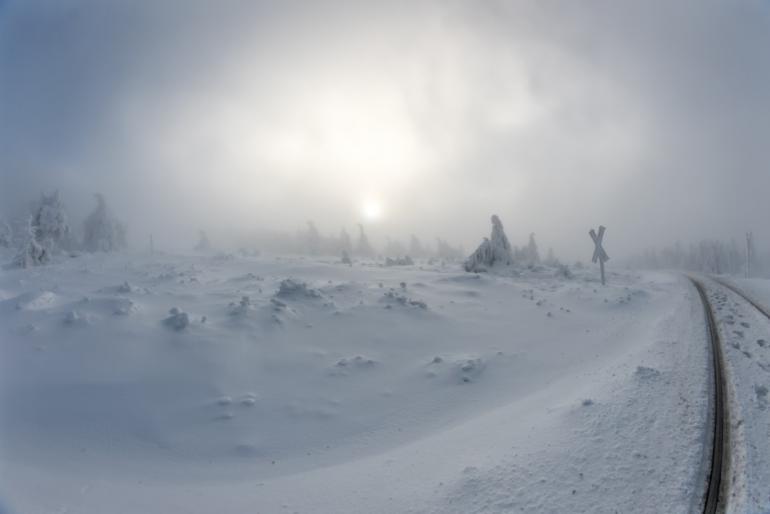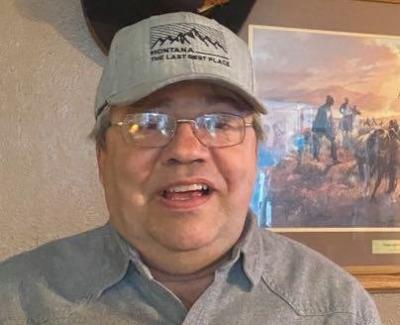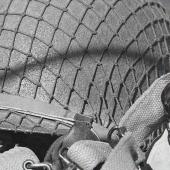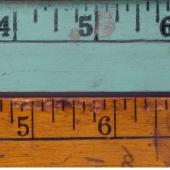The Old Broke Rancher On the Brutal Winter of 1977-1978


For me, the winter of 77-78 began in earnest on Halloween day. That initial storm came whipping out of the east, bringing frigid cold and unseasonable precipitation. Those trick-or-treaters brave or foolhardy enough to go trawling for candy found their Luke Skywalker and Wonder Woman costumes inadequate to shut out the snow. I imagine many of them had to wonder if it were worth the Tootsie Rolls to brave the arctic conditions. And it just got worse, after that.
The phone rang. It was the Burlington Northern, our kindly, avuncular employer calling for my brother Neal to tell him he was furloughed until further notice. I had about a year seniority over than my brother, so it took about eight more minutes before I got the same phone call. If dog years are one human year multiplied by seven, railroad seniority years are one human year turned into a meager handful of minutes.
This event was not totally unexpected as often the newer employees are furloughed when hunting season ends, or with a little more seniority, when the holidays are over. Lean times were normal between January and May. It all starts up again in late May or early June, and famine turns to back to feast.
A wise younger employee banks a little from the feast times to spend in the lean days. But I wasn't all that wise at the tender age of 25. As a matter of fact, I was unsophisticated and cheap, and my brother and I had gotten good at living low on the hog if we had to. We could camp anywhere, sleep in a van, and secretly aspired to being bums. Ski bums, if not career bums.
So a normal person who just got furloughed, might have had some anxiety about things, not us, we were going skiing, "Wo Hoo." Of course, even back then a night at a motel at or near a resort town, even back then was pricy. So we reckoned we'd sleep in the van, but that didn't bother us much.
Fastidious employees of the railroad, we arranged with the kindly old lady, which was our "Lot Lord" in the trailer park, to get our mail and check on the old trailer. We asked her to watch closely for a letter from the BN calling us back to work. We would check-in by phone about three times a week. We had only ten days from the receipt of said letter to report back to work or give up our seniority.

The van was ready to go, with oil changed, gas tank full, and skis loaded on top. Big Sky, Jackson Hole, Steamboat Springs, Aspen, Vail, Telluride, here we come, to camp and bum all the way to spring.
We had only to climb in and turn the key, and we would be off on adventure. The only thing that troubled us, were we to bother to think about it, was that it was still snowing out. As a matter of fact, the Interstate road Forsyth to Billings was closed due to drifting, so we had to wait for snowplows.
The next morning, rested and ready, my brother made one final pass through the trailer house before starting the van for the adventure.
The phone rang. It could have been anyone, but I think we both knew who it was. I yelled, "don't answer it!"
He answered it, and it was, of course, the BN saying that he needed to report to Minot, ND due to the ongoing emergency weather. His seniority needed to be protected, as he was now the youngest on furlough and had 24 hours to report to Minot.
I was half-inclined to run out into the van myself, brother be damned. I could have been on the slopes in five hours, but an ill-advised and bitterly cold wind of responsibility blew through me, chilling my bones. And sure enough, seven, maybe eight minutes later, the phone rang. I had 24 hours to report to Minot ND to protect my seniority.
I looked at Neal and he looked at me. We quickly poured a melancholy shot of whiskey. "To skiing, sooner rather than later." Then we traded our ski equipment for coveralls and piled into the van to drive off to beautiful Minot, ND, where the sun may not shine but the wind sure as hell blows.

We got to the yard office after ten hours of white knuckle driving and showed our faces to the crew clerk in the yard office. He said, "we've been expecting you boys from Forsyth. Which one of you is Shelton?"
"We both are."
"Good, you're both called. You got one hour to report back here for work."
"What kind of train?" my brother asked.
"Snowplows," he says, "You're on separate trains, one each direction out of here."
Minot ND is not known for its sunshine, palm trees, or for the bearability of its living conditions. They don't serve little umbrellas in their drinks there. In fact, the area from ND to the Great Lakes has brutal winters on a good year. But 1977-78 winter became famous as one doozy of a winter, maybe the worst since the Big Die Up of 1886-87.
One hour later, the highways and roads out of Minot were closed in all directions as the storm raged on. In those days, Rail crews were restricted to less than 12-hour shifts, followed by eight hours rest. The dispatcher instructed us to find a motel, tie up, and come back on duty after eight hours rest and continue that pattern until further notice or until the rail lines were open.
The pattern went on for more than two weeks. The crew members on those snowplows had to wash our socks and unmentionables in the sink or tub and dry them however we could in the eight hours off we had off. A little inconvenient, perhaps, but opening up the main lines of commerce was not an option but a necessity. The freight must get through.
Needless to point out, that kind of work schedule leads to some fine-looking pay stubs as certainly as it does a surly worker. Moreover, we didn't get the damn paychecks for well over a month because the paychecks were sent to Forsythe before making their perilous way to the frozen wastes of North Dakota. Of course, there wasn't anything to spend the money on, since we worked every waking hour. Once we did get our money, the only place we could spend them were at the meager restaurants available in the hotels in which they put us up; we splurged on an extra slice of cheese atop our greasy burgers, or we sprung for a marginally less tough cut of meat for dinner.

When, at the end of two weeks, I was finally relieved of duty, I watched in astonishment as the same crew clerk that called me in two weeks before took the tag bearing my name from the current assignment and hung it on the part of the crew board reserved for extra brakemen. I could not help but notice that my tag was the only tag on the whole board. I made eye contact with the clerk in a way that may have suggested my slight displeasure with the arrangement.
He said, "You're called for an extra snow plow on your eight hours rest."
My second call was a ditto of the first, including the two weeks gone. The only difference was that this time the plow went the other direction out of Minot.
So I cannot close this without saying a little about what goes on in a rail snowplow in 1978. An entire section crew was seat-belted safely inside the plow because several times a day, the drifts were so deep that it would actually derail the plow. Then the crew would bail out of the inside with things called "frogs," back up the plow, and get it back on the rail for another hit at the drift. The plow was followed by two locomotives back to back so that the machine could go either direction, and the final car in the train was another plow, facing the other direction.
The crew foreman in the lead plow told the engineer how fast to hit the drifts. Being the head brakeman, I looked out a 4 inch by 6-inch window covered in safety screen directly over the 'v' of the plow, calling out the block signals as we came to them.
On one of the interminable work shifts of that endless winter, I noticed as we approached an elevator on one of the branch lines out of Minot that the rail was cut deep into the surrounding hill. Trains need a grade, so often they cut through a hill to keep on grade - but you might have high banks on what's left of both sides of the hill, so that it still looks like the original hill is there. I did a quick estimate and thought that the snowbank we were about to plow had to have been about 20 feet deep, or even more.
I nervously looked up at the old engineer, and said you're not going to hit that are you? He took a long pull on the pipe he was smoking, blew out a condescending cloud of blue-tinged smoke, and said, "Son, this here is a train, and nothing stops a train."
A few minutes later, that old-timer who affected to know everything there was to know discovered that a twenty-foot drift can, and will, stop a train.
Complaints aside, I had to admit it was a unique thrill to hit a 10-foot drift at 60 mph and watch the snow fly. In truth and with hindsight, I can admit I loved every minute of it - but mostly seeing the paychecks about a month later.
Meanwhile, back in Montana, the winter was just as bad, but Montanans are tough, and we got through it. My brother and I returned, exhausted, to our trailer house on the 15th of May, 1978.
We didn't get to go skiing until 1979.


Gary Shelton was born in Lewistown in 1951 and has been a rancher, a railroader, a biker, a teacher, a hippie, and a cowboy. Now he's trying his hand at writing in the earnest hope that he'll make enough at it to make a downpayment on an RV. Hell, scratch that. Enough to buy the whole RV. He can be reached at [email protected] for complaints, criticisms, and recriminations. Compliments can be sent to the same place, but we request you don't send them - it'll make his head big.









- Reply
Permalink